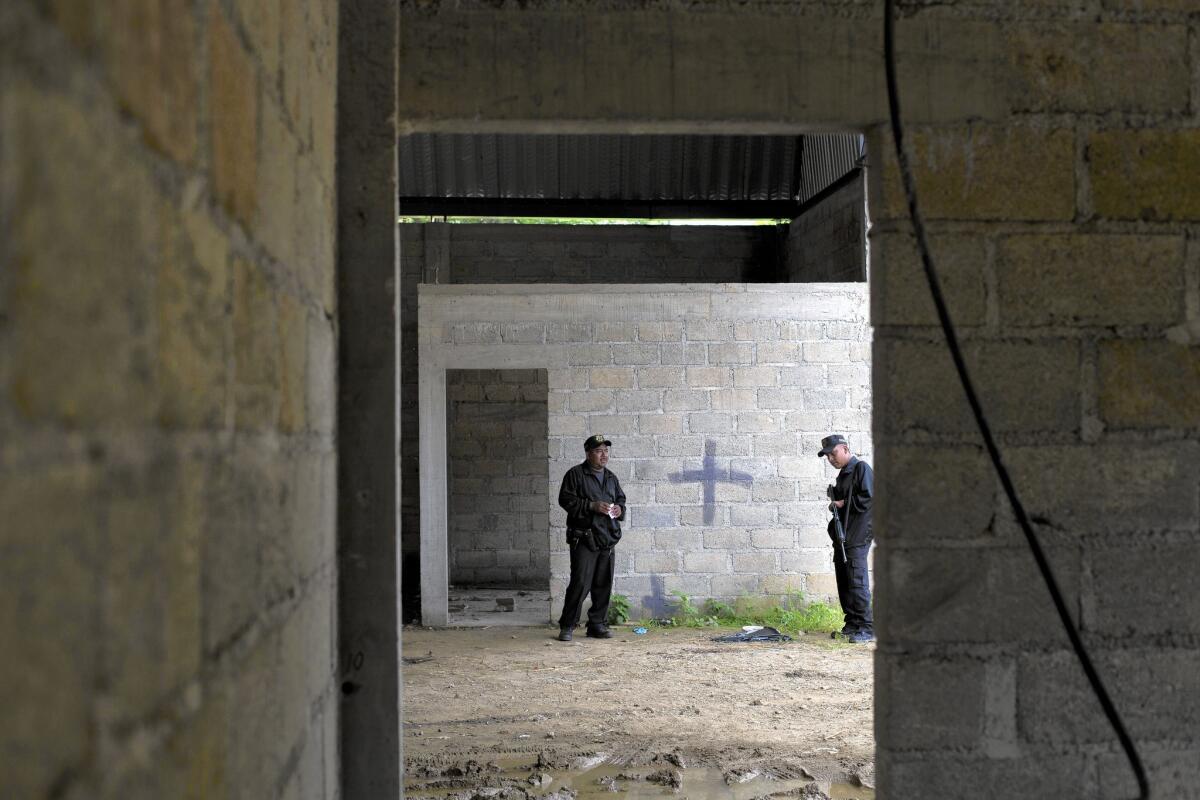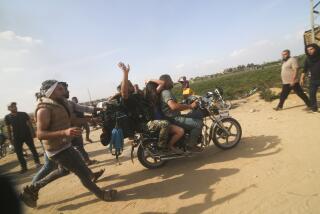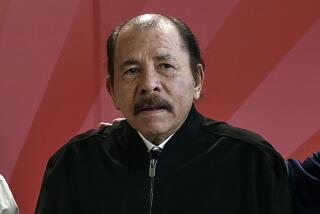Mexico troops in Tlatlaya slayings had orders to kill, report says

Reporting from Mexico City — In one of the most polemic large-scale killings confronting the government of President Enrique Peña Nieto, a new report says Mexican army soldiers were acting on orders to eliminate suspected criminals “in the darkness” without regard for their rights or due process.
The 50-page report on killings last year in the town of Tlatlaya, released Thursday, coincides with a protest by U.S. lawmakers over Mexico’s increasingly shady human rights record.
Led by Rep. Alan Lowenthal (D-Long Beach), 82 members of Congress signed a letter to Secretary of State F. John Kerry citing both the Tlatlaya case and the kidnapping and likely killing last year of 43 college students by police and gangsters in collusion with local politicians in Guerrero state.
“These two cases are not isolated incidents in Mexico,” the letter says. “Rather they illustrate a broader pattern of grave human rights violations in the country, including cases of torture, arbitrary detentions, kidnapping and extrajudicial executions.”
Mexico receives millions of dollars in U.S. aid aimed, in part, at overhauling its police and judicial system.
In Mexico City, Centro Prodh, the pro-left Miguel Agustin Pro human rights organization, released what it described as official military documents from the 102nd Infantry Battalion, which was involved in the June 2014 killing of more than 20 people in Tlatlaya.
Initially the army described the incident as an armed clash, but news reports and the testimony of survivors later indicated that at least a dozen of those killed had been shot to death after surrendering or as they lay wounded.
Amid uproar, the army finally charged three of its soldiers with homicide. But questions simmered about how soldiers could take it upon themselves to kill without provocation and in violation of the army’s rules of engagement.
The new report addresses that question, citing a military document as saying that standing orders were to kill.
“Troops must operate at night, in massive form, reducing daytime activity, to kill criminals in hours of darkness,” the purported army document says.
The Mexican Defense Ministry said by telephone that it would not have an immediate reaction. The office of the presidency has repeatedly said the government respects human rights.
But such orders suggests that an investigation of wrongdoing would have to extend into higher military ranks, something that rarely happens in Mexico.
One of the Tlatlaya survivors appeared in public Thursday for the first time. Clara Gomez spoke at the Centro Prodh news conference. Her 15-year-old daughter, Erika, was among those killed that day. Gomez and two other women who survived were arrested and, they have told human rights investigators, were sexually tortured to force their silence. (Seven state police officers were charged with torture in connection with the case this week.)
“The only thing I want is justice for the execution of my daughter, Erika; that those responsible be punished,” Gomez said, dabbing her eyes. “I know my life is at risk, but I want justice because what they did to my daughter God cannot forgive.”
Sanchez is a special correspondent.
More to Read
Sign up for Essential California
The most important California stories and recommendations in your inbox every morning.
You may occasionally receive promotional content from the Los Angeles Times.











